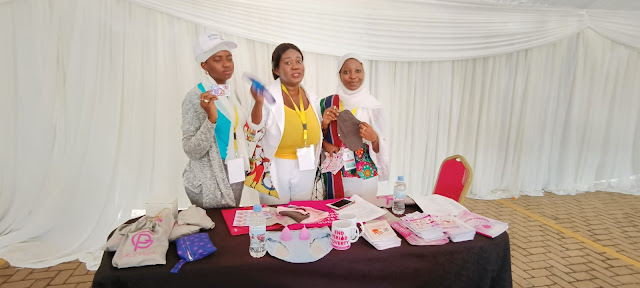Latest newsletter. What has happened to our startup in the last few days?
World Environment Day is 5 June 2023
Focus on solutions to plastic pollution #BeatPlasticPollution campaign
This challenge target youth around the world - the next generation of consumers and change-makers - to show that sustainable living is easy, cool and fun.
Angolan housewives are sustainably reusing Plastic Bottles for their garden
Ladies and gentlemen,
Welcome to our green world.
We have developed this sustainable hybrid platform with the aim of educating people about preserving the environment and promoting the SDG 13. In this video, we’ll show you how Angolan to turn the bottles into garden planters, hanging baskets, garden tools, or decorations.
The most interesting factor is in the innocence of these women. Most of them reuse plastic bottles with no intention of protecting the environment. 90% of Angolan women do not even know what climate change is and the damage that plastics cause to the environment.
They reuse plastic bottles for their gardens, due to extreme poverty. Many of them don't have the money to buy original beautiful pots for their plants.
By reusing plastic bottles they save a lot of money for years to come.
https://sustainablelifestyle-angola.blogspot.com/2023/06/beatplasticpollution-housewives-are.html

Globally teenage pregnancy has been a major interference to the educational achievement of female learners. Teenage pregnancies among school-going learners have grown at an alarming rate and is a serious concern in Angolan society.
Edvania's story
Our heroine today is Edvania, a 17 year old girl. She is pregnant and has just dropped out of school.
Hello!
How have you been dealing with this situation?
Well, in my point of view, it's not a 7-Headed bug, as the elders say.
I manage to control the situation, although at times it has been very difficult and complicated for me.
For my age this pregnancy is a bit complicated because it has certain life risks that I can face.
Tell me about your family relationship. Do you have family acceptance?
Yes I have.
Did the father of your baby assume the pregnancy?
Yes he assumed the pregnancy.
What about school? Are you still in class?
At the current rate, 20 million more girls will marry during childhood and adolescence in the next decade. The situation has been aggravated by internal conflicts, natural disasters and outbreaks of disease, such as COVID-19, which have disrupted progress towards achieving the SDG targets. Child brides drop out of school to bear children, compromising their health and well-being, and limiting their future autonomy and potential as productive workers, change agents and contributors to African economies.
JOIN THE ACTION HERE: Women's Reproductive Health - Teen Pregnancy and child marriage as a Cause of School Dropout in Angola (sdg3-angola-sofoniedala.blogspot.com)
https://sdg3-angola-sofoniedala.blogspot.com/2023/06/womens-reproductive-health-teen.html
.png)



Comments
Post a Comment